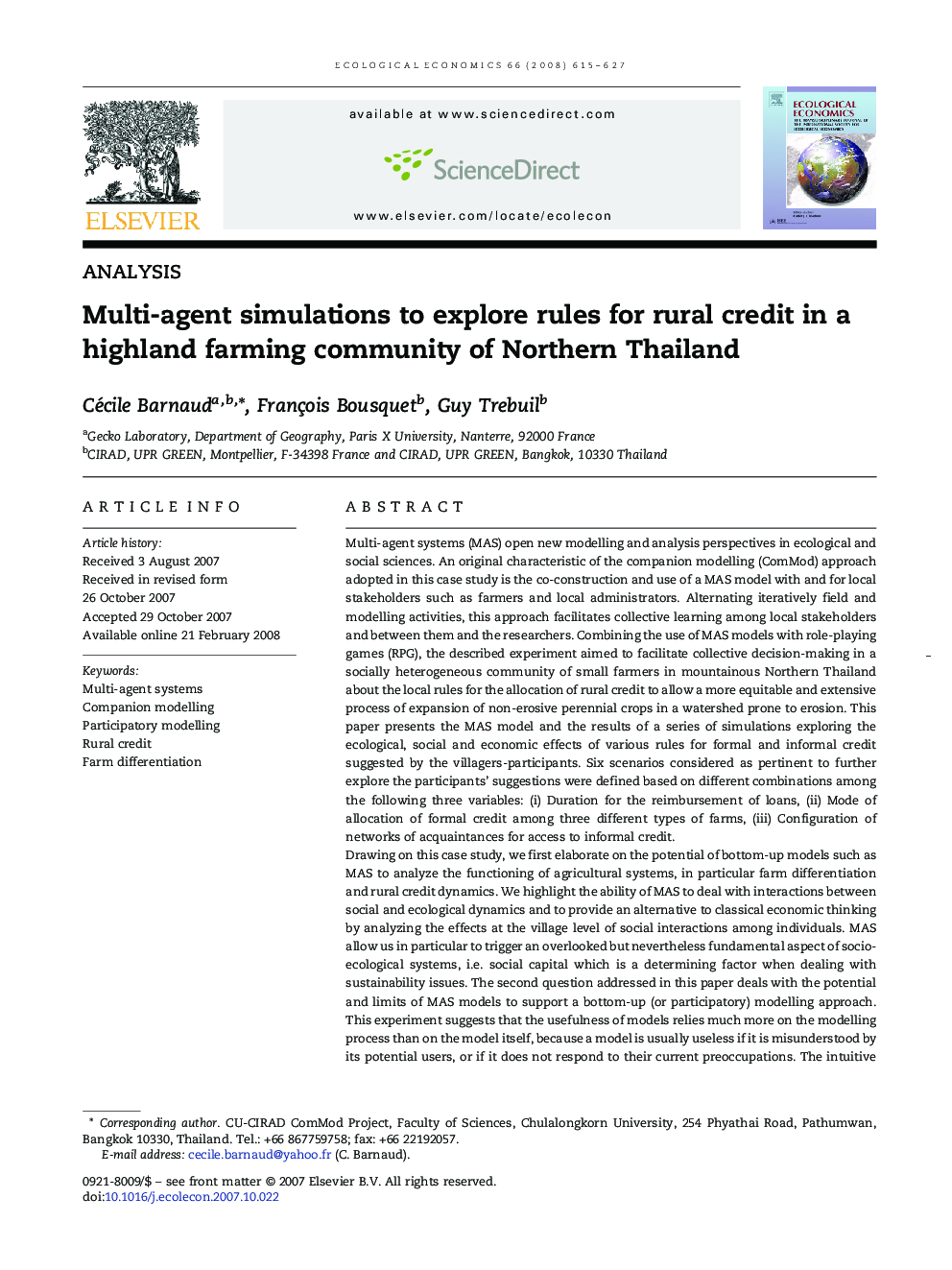| کد مقاله | کد نشریه | سال انتشار | مقاله انگلیسی | نسخه تمام متن |
|---|---|---|---|---|
| 5051800 | 1371136 | 2008 | 13 صفحه PDF | دانلود رایگان |

Multi-agent systems (MAS) open new modelling and analysis perspectives in ecological and social sciences. An original characteristic of the companion modelling (ComMod) approach adopted in this case study is the co-construction and use of a MAS model with and for local stakeholders such as farmers and local administrators. Alternating iteratively field and modelling activities, this approach facilitates collective learning among local stakeholders and between them and the researchers. Combining the use of MAS models with role-playing games (RPG), the described experiment aimed to facilitate collective decision-making in a socially heterogeneous community of small farmers in mountainous Northern Thailand about the local rules for the allocation of rural credit to allow a more equitable and extensive process of expansion of non-erosive perennial crops in a watershed prone to erosion. This paper presents the MAS model and the results of a series of simulations exploring the ecological, social and economic effects of various rules for formal and informal credit suggested by the villagers-participants. Six scenarios considered as pertinent to further explore the participants' suggestions were defined based on different combinations among the following three variables: (i) Duration for the reimbursement of loans, (ii) Mode of allocation of formal credit among three different types of farms, (iii) Configuration of networks of acquaintances for access to informal credit.Drawing on this case study, we first elaborate on the potential of bottom-up models such as MAS to analyze the functioning of agricultural systems, in particular farm differentiation and rural credit dynamics. We highlight the ability of MAS to deal with interactions between social and ecological dynamics and to provide an alternative to classical economic thinking by analyzing the effects at the village level of social interactions among individuals. MAS allow us in particular to trigger an overlooked but nevertheless fundamental aspect of socio-ecological systems, i.e. social capital which is a determining factor when dealing with sustainability issues. The second question addressed in this paper deals with the potential and limits of MAS models to support a bottom-up (or participatory) modelling approach. This experiment suggests that the usefulness of models relies much more on the modelling process than on the model itself, because a model is usually useless if it is misunderstood by its potential users, or if it does not respond to their current preoccupations. The intuitive representation of real systems provided by MAS and their high flexibility are the two underlined characteristics favouring their appropriation by local stakeholders.
Journal: Ecological Economics - Volume 66, Issue 4, 15 July 2008, Pages 615-627